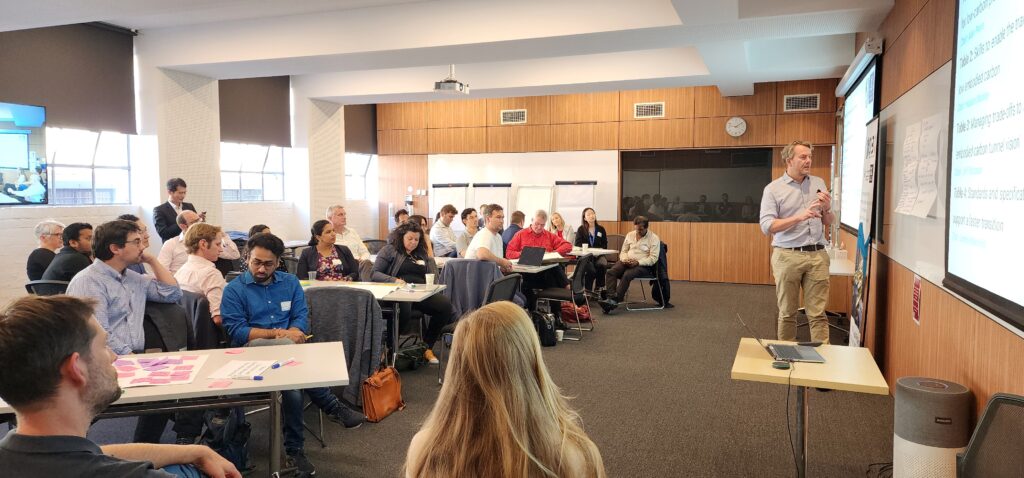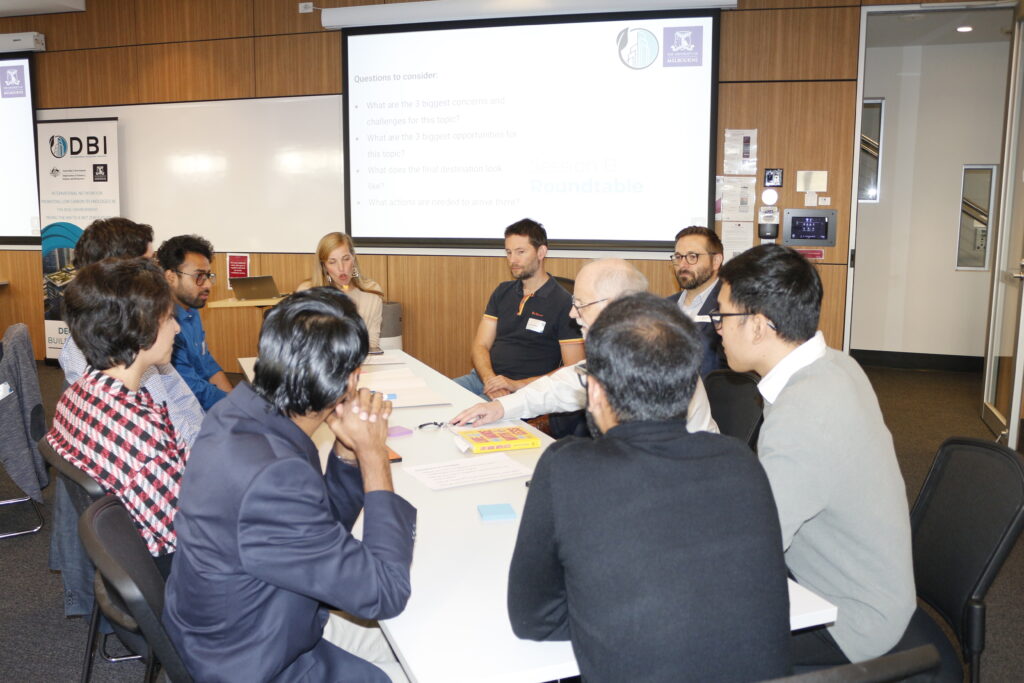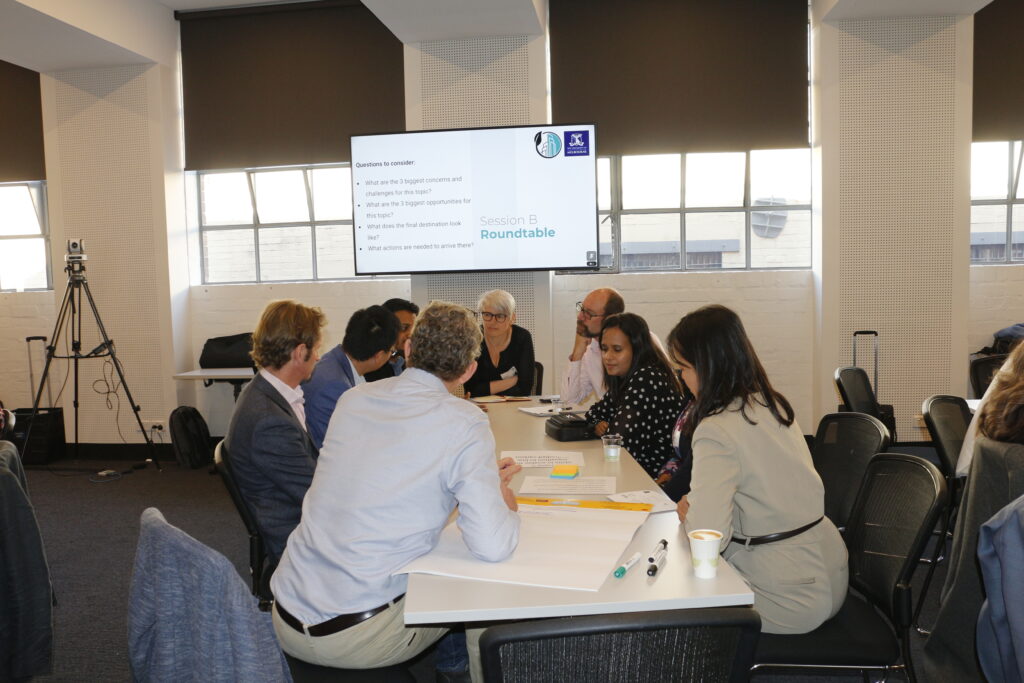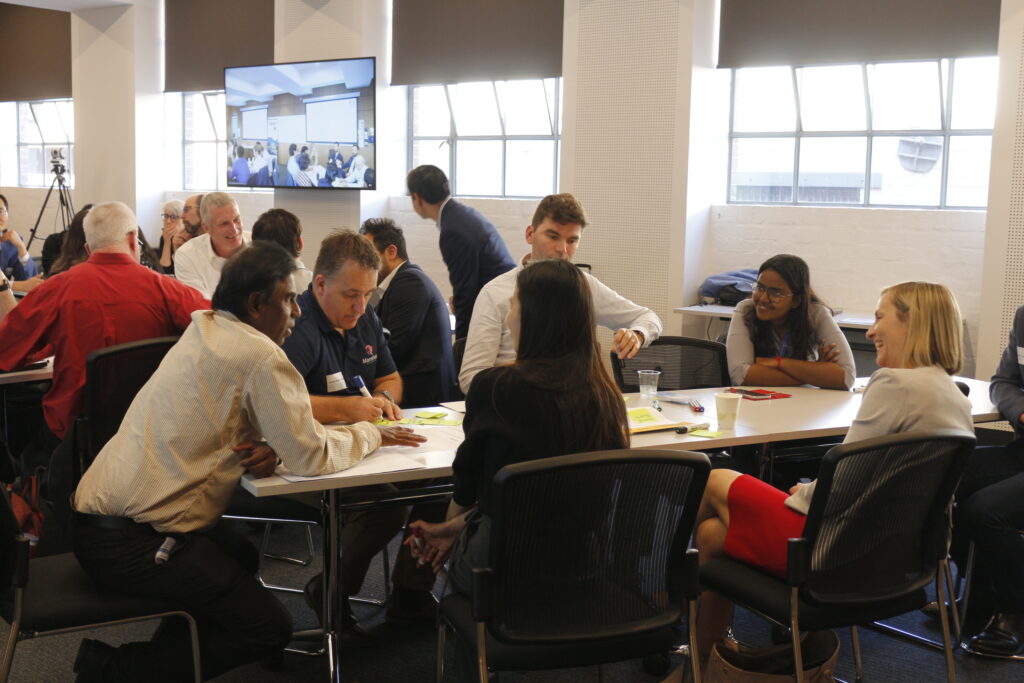Event date: March 22, 2024
The afternoon session featured engaging round table discussions that delved deeper into the challenges and opportunities surrounding the reduction of embodied carbon in the construction sector (see the whole day’s description through this link). Attendees, including industry professionals, academics, and government representatives, participated in four focused discussions, each tackling a crucial aspect of the transition towards a more sustainable built environment.
The roundtables covered the following topics:
- Consistent and significant demand for low-carbon products
- Skills to enable the transition to low embodied carbon
- Managing trade-offs to avoid ’embodied carbon tunnel vision’
- Standards and specifications that support a faster transition
Moderated by experts in their respective fields, these discussions provided a platform for participants to share their insights, experiences, and ideas, fostering a collaborative environment that encouraged innovative thinking and problem-solving. The outcomes of these roundtables will play a crucial role in shaping the DBI Network’s strategies and initiatives to support the decarbonization of Australia’s built environment.

Consistent and Significant Demand for Low-Carbon Products
The round table discussion on “Consistent and Significant Demand for Low-Carbon Products” highlighted key challenges such as risk aversion and a fragmented supply chain in adopting sustainable materials. It emphasized the potential of policy interventions, like carbon pricing, and the benefits of prefab construction to enhance efficiency and reduce waste. The conversation called for a unified approach combining policy, technology, and collaboration to overcome barriers and foster sustainable building practices. This event underscored the critical need for innovation and practical implementation to achieve a greener construction industry.

Skills to Enable the Transition to Low Embodied Carbon
The “Skills to Enable the Transition to Low Embodied Carbon” round table highlighted the urgent need for upskilling in the face of rapidly evolving sustainability demands in construction and engineering. It stressed the importance of bridging the gap between industry and academia to foster innovation and adaptability. Key takeaways included the necessity of both technical skills, such as procurement and materials management, and soft skills like change management, to navigate the shift towards low carbon solutions effectively. The dialogue called for a collective push towards valuing carbon impact equally with cost, aiming to transform industry practices towards achieving net-zero goals.

Managing Trade-offs to Avoid 'Embodied Carbon Tunnel Vision'
The roundtable on “Managing Trade-offs to Avoid ‘Embodied Carbon Tunnel Vision’” united industry experts and academics to rethink construction sustainability. Emphasizing holistic design over mere carbon reduction, discussions called for valuing existing structures, integrated design processes, and the use of advanced analysis tools. The consensus highlighted a shift towards sustainable, adaptable, and architecturally significant buildings that balance embodied and operational carbon impacts. This vision urges industry and policy shifts to prioritize long-lasting, valued constructions for a sustainable future.

Standards and specification that support faster transition
During a round table on “Standards and specification that support faster transition”, experts highlighted the challenge of navigating a cluttered landscape of overlapping standards and the urgency of adopting flexible, performance-based specifications for low-carbon solutions. The discussion emphasized the potential for progress through unified language, incentives for innovation, and government support. Envisioning a future of zero-carbon products and standardized sustainable practices, the conversation called for collaborative efforts to embed sustainability at the heart of industry standards, marking a critical step toward environmental stewardship.

The roundtable discussions at the DBI Network’s workshop on “Embodied Carbon Framework for Australia’s Built Environment” showcased the wealth of knowledge, expertise, and commitment within the industry to address the pressing issue of embodied carbon in the construction sector. The insights gained from these discussions will be invaluable in guiding the DBI Network’s future efforts to drive the transition towards a more sustainable built environment.
As the DBI Network continues to work towards its goal of shaping a sustainable future for the building industry, the outcomes of these roundtables will serve as a foundation for developing targeted initiatives, fostering collaborations, and advocating for policy changes that support the reduction of embodied carbon. By bringing together diverse perspectives and expertise, the DBI Network is well-positioned to lead the way in transforming Australia’s construction sector and contributing to the global fight against climate change.
We invite you to stay engaged with the DBI Network’s ongoing efforts and to join us in our mission to create a more sustainable built environment for generations to come.

